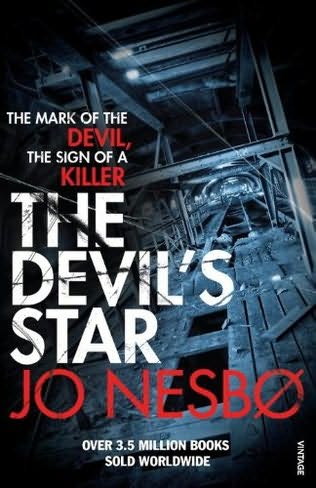




What with all the children and everything and needing at least a dozen eyes to keep an eye on them, I have made it through and this is my list for the few days I have been reading them around. 1) Sir Arthur Conan Doyle's Illustrated Collection of Sherlock Holmes (included Hound ofthe Baskervills and Sign of Four) 2) Agatha Christie - And then There Were None 3) Agatha Christie - Clocks (Hercule Poirot) 4) Patrick Neate - City of Tiny Lights. Ok they're not in order of the best to worst but it is a fantastic comparison between 3 different generations of thriller writers. One thing for sure, all were English so I suppose the English authors have an aptitude for crime novels much because Sir Arthur Conan Doyle had started it, and I very much applaud them for that. This could include, Roald Dahl's more morbid collection of horror stories
.Allright, I though Clocks was far better than And Then There Were None, Clocks being one of her more uncelebrated books while And Then There Were None has managed to single its way out into video games and TV movies. Hercule Poirot in this imagery was special, for one thing, Poirot was not around most of the time, in fact he played a minor character while the other two, Hardcastle and Lamb played the major parts. Ironically, it was frankly reminiscent of a book I read a few months back, Jo Nesbo's The Devil's Star, surprisingly. Or maybe not so surprisingly considering that many crime novelists take their cue from old novelists. I actually appreciated the fact that Christie made Poirot as if on his last notes, using patterns of old authors to solve new crimes, and it made it enough realistic as soon as he quotes a song from Lewis Caroll's Through The Looking Glass (Alice in Wonderland for you and me) and citing several patterns in crime novels obvious to the untrained eye blablabla. I suppose characters like Poirot then I parallel with the likes of Patrick Neate's Tommy Akhtar are both private investigators. Both have born the brunt of a life that cannot surprise them anymore. Poirot as an ex Belgian copper and Tommy as an ex mujahideen who has been in a pointless war. What strikes me as wonderful though is that Neate was able to bring in fresh air towards something that has gone stale. I congratulate you there Neate, you're not Muslim but you make the experience seem so real. As if such a character actually exists...knowing authors, he probably does. A shady Ugandan-Indian Paki (Hahaha) I mean it was brilliant. It was easier for them because they were outside the brunt of the law, they weren't coppers. Coppers have to work inside the mainframe of institution. Private eyes on the other hand don't. That is why the successful character in Jo Nesbo's the Devil's Star, although was a cop but a shady one at that, used to breaking rules left,right and centre. And then to the original Sir Arthur Conan Doyle. Although I have to admit that his formula seems to be repetetive, but him as like Poirot are both vain people and I suppose Poirot actually identified himself better with Watson, image I suppose. I do reckon one thing though, if anyone was murdered right here in Brunei and had the superior knowledge of CSI as well as the rest of the crime novels, they could get away scot free. Just like that Indian doctor who was killed a few years back in the 90s by some foolish petty thief in Kiarong. I think it's probably an accident because frankly, Malay people although quite stupid at the most...are very soft-hearted people.. Not as hard-hearted as the rest of the people in this world. We haven't seen much suffering in this world and quite frankly often it is a suffering made out of our own hands. And even then not as purely pathetic and depressing as in the rest of the world. World War? Nothing much, a bunch of Chinese people getting killed by the Japs. Chinese people on the other hand have that feeling, I don't know why, somehow they have felt more of the brunt than we have and I'm not quite sure why. There have been horrible accidents involving Malay people but honestly it doesn't haunt the Malay psyche, it's probably due to the fact to Malay axioms of not mourning the dead, and letting go with a normal philosophy of accepting everything be it cruel or kind. We call it the Qadha and Qadar. Ironically, although it exists in most Muslim societies, only this part of the Malay world has taken that adage seriously. Awful world? Accept. Bad parents? Accept. Raped? Marry the rapist. Other people in the other parts of the world are unlike that, they don't accept, bad things happen they must change it to become better. I'm not sure why, is it because it's rooted? Well, I for one isn't like that. Probably, it is a newer generation kind of thing.It's got much to do with the wars in Tommy Akhtar's world, in Hercule Poirot's pattern synthesis. In the colonial world lived by Sherlock Holmes and Watson in the Sign of Four. It also exists in the immigrant prejudice in Nesbo's world as well. People have evolved to the extent that they are free. But to put it right, Man is not cursed to be free as said by the French philosopher (can't put out his name right now, can't remember it). Man is a product of his society. How can he be free? Often if he is, like Tommy Akhtar, even he himself is bound to social stigma rules of operation.
No comments:
Post a Comment